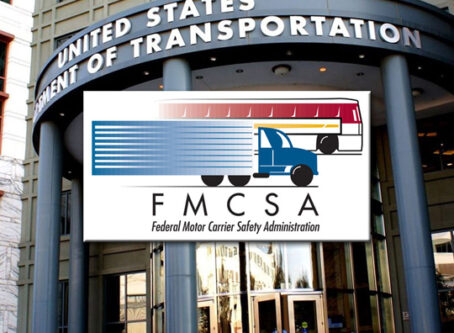Maine, Florida, Oregon voters decide on tax increases, issuing bonds
Voters in Florida and Oregon decided this week whether to make it more difficult for state legislators to enact tax increases. Elsewhere, Maine voters decided whether to tap bonds for road and bridge work.
Maine Question 3
Voters in Maine gave the go-ahead this week once again to tap millions in bonds for transportation uses.
Question 3 on the statewide ballot was approved by a 68-32 percent margin. Passage will allow the state to move forward with a plan to fund $106 million in road and bridge work, and other transportation purposes throughout the state.
Passage of the transportation bond initiative will result in $80 million in general obligation bonds for construction and maintenance of highways and bridges. The state’s ports, harbors, transit and freight rail, and bicycle and pedestrian trails will receive $20 million. Another $5 million will be applied to culvert upgrades.
The money is used to support the Maine Department of Transportation’s work plan.
A year ago, voters approved a $105 million bond to fund transportation projects.
During the past 12 years, Ballotpedia reports that Maine voters have now approved nine transportation bond issues with a combined total of $779 million in bonds.
Supporters said this year’s bond issues are needed to secure an estimated $137 million in federal matching funds, and other funds, for transportation work in the state.
Florida Amendment 5
Florida voters approved a question about whether they want to make it more difficult for their legislators to increase taxes.
State law now mandates a simple majority of the Florida Legislature to enact new taxes or increase existing tax rates.
Amendment 5 passed with 66 percent of the vote. Passage of the amendment required 60 percent approval by voters.
As a result, a two-thirds vote of legislators in both statehouse chambers is now necessary to enact new taxes or increase existing tax rates. The change amends the state’s Constitution.
Advocates said the supermajority requirement would likely require more than party-line support to get tax increases enacted.
Critics said there is no need for a higher threshold. Instead, they said the current majority requirement is sufficient.
The new rule is applied to taxes that include sales, fuel, alcohol, and driver’s licenses.
The requirement does not apply to fees or taxes collected by a county, municipality, school board, or special district. Taxes or fees increased during times of emergency would also be exempt.
Oregon Measure 104
By a margin of 65-35 percent, Oregon voters rejected an effort to require a supermajority vote at the statehouse for legislation to raise revenue.
In 1996, Oregon voters approved a requirement for a three-fifths vote of each state legislative chamber to pass bills raising taxes. The Oregon Supreme Court, however, issued a ruling four years ago that the Legislative Counsel said excluded from the three-fifths vote requirement bills that cover tax exemptions, credits and deductions.
Measure 104 was a proposed constitutional amendment to require a three-fifths supermajority vote for legislation to make changes in taxes and fees. Specifically, the changes to tax expenditures would apply to exemptions, credits and deductions. In addition, tax and fee creation or increases must also have supermajority approval.
Supporters said Measure 104 would close loopholes created by legislators to eliminate tax deductions to get around the state’s constitutional requirement to raise revenue. They added that the requirement would encourage bipartisanship to work together to write legislation that would affect tax rates.
Opponents said if the measure passed it would have been nearly impossible to eliminate special interest perks, tax breaks, and loopholes. They said the change would create legislative gridlock.









